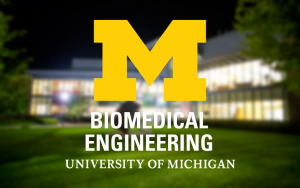Presented By: Biomedical Engineering
Ph. D. Defense: Caymen Novak
Mechanotransduction in Breast and Ovarian Cancers: Using bioreactors to study the cellular response to physiological mechanical stimuli

Cells within the body experience a wide range of dynamic mechanical stimuli. These stimuli are exacerbated in cancers and can alter the progression of the disease. As the tumor grows and expands it displaces the surrounding matrix and cell environment creating internal compressive forces and altering interstitial and vascular blood flow thereby enhancing shear stress exposure. How the cells translate this mechano-environment into downstream signaling is known as mechanotransduction. Though preliminary research has touched on the influence physiological mechanical stimulus can have on cancer progression, the work remains erratic and lacks understanding of cell metastasis, gene expression, proliferation, and chemotherapeutic response. In order to address this unknown effect on cellular phenotypes and treatment response, two bioreactors capable of tunable three-dimensional stimulus with either shear stress or compressive forces were developed. Breast and ovarian cancer cells were exposed to physiological stimuli and studied for invasive potential, altered gene expression, proliferation, and chemotherapeutic response. Overall, findings suggest that this dynamic mechanical environment aids in the advancement of cancer migration, proliferation, and chemoresistance which may be mitigated by targeting of various mechanotransduction pathways. The bioreactors constructed and utilized for this study provide 3D platforms ideal for understanding the influence of compressive and shear stress stimulus on cellular behavior, a critical component to our understanding and improvement of cancer patient treatments.